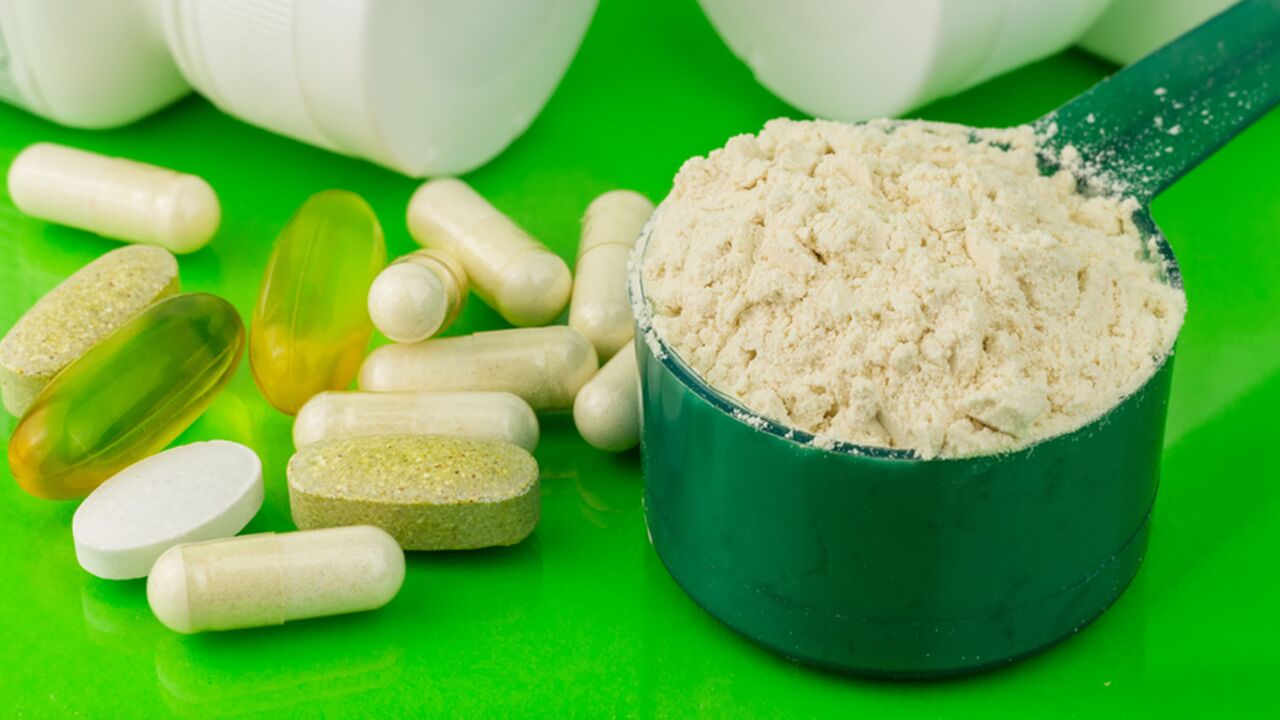Amino Acids and Kidney Disease
 By: by Dr Robert Wolfe
By: by Dr Robert Wolfe

Amino acids and kidney disease are inextricably linked. The kidneys are responsible for excreting metabolic waste products, including urea and ammonia, which are the end products of amino acid metabolism. Kidney disease is characterized by the failure to effectively clear these and other compounds from the blood.
Many individuals have a degree of kidney disease. Approximately 60% of people over the age of 65 have some impairment in renal function. This gradual decline in kidney function is called chronic kidney disease (CKD) or chronic renal failure and affects over 30 million Americans. The biggest risk factors for developing renal disease are high blood pressure, cardiovascular disease, insulin resistance, and diabetes, all of which put excess stress on the narrow blood vessels in the kidneys.
Monitoring Kidney Health
Kidney health is typically measured by looking at the GFR (glomerular filtration rate), which is a measure of how well the kidneys are filtering toxins from the blood. As part of a blood test a doctor will measure the kidneys' ability to handle the waste product creatinine in what is called the creatinine clearance rate, and from this, the doctor can measure the rate at which blood is being filtered through the kidneys. The National Kidney Foundation recommends that GFR tests be performed regularly as part of an annual physical exam since early detection can help stop the progression of the disease.
Kidney Failure and Muscle Loss
In addition to causing massive oxidative stress that can result in a cardiovascular event such as a heart attack, kidney failure induces the stress response, and by association, loss of muscle mass and strength. The onset of the stress response is brought about in part by inflammation, as well as hormonal responses, including elevations in cortisol and epinephrine. In addition, the accumulation of urea and ammonia acidifies the blood, which has a direct inhibitory effect on muscle protein synthesis and can cause metabolic acidosis. The result is a profound loss of muscle mass and strength that has many unfavorable consequences.
Kidney Failure and Protein Intake
When kidney function is adequate, excreting the urea and ammonia produced from the metabolism of dietary protein intake is not an issue. In fact, it is well established that high-protein intake does not cause kidney failure when kidney function is normal. Unfortunately, with kidney failure, dietary protein has to be limited because of the impaired secretion of urea and ammonia.
Anabolic resistance—the compromised ability of the body to build muscle protein—is difficult to overcome in any circumstance but is particularly problematic when it comes to kidney disease. It would seem logical that the most effective dietary approach to anabolic resistance would be to consume a high-protein diet because protein metabolism fuels muscle protein synthesis. However, consumption of large amounts of dietary protein increases urea and ammonia production due to the metabolism of the absorbed amino acids that are not incorporated into protein. This is a high metabolic price to pay since anabolic resistance minimizes the effectiveness of protein intake.
Consequently, a low-protein diet is usually recommended for chronic kidney disease patients. While a protein-restriction diet minimizes the amount of urea and ammonia in the blood, in the setting of anabolic resistance a low-protein diet accelerates the rate of muscle loss. Because the importance of maintaining muscle mass is becoming much more widely appreciated, many experts in kidney disease are torn between the traditional recommendation for CKD patients to eat a low-protein diet and the adverse effects a low-protein diet has on muscle mass and function.
Essential Amino Acids and the Kidney
There is no circumstance in which the judicious use of dietary essential amino acids can provide more unique benefit than kidney disease. A brief overview of the relationship between amino acids and the kidney should make clear the role of dietary essential amino acids in lessening the devastating loss of muscle mass and function that normally occurs with kidney disease.
Muscle protein is in a constant state of turnover—protein is being broken down and releasing the component amino acids into the cell (protein breakdown), while at the same time cellular amino acids are being incorporated into new protein (protein synthesis). Part of the process of muscle protein turnover also involves the release of amino acids into the blood. While some of those amino acids released by muscle are taken up by other tissues and organs and incorporated into protein, others travel to the liver for metabolism, resulting in the production of urea and ammonia. The balance between protein synthesis and breakdown is determined by the rate of these various processes that are all occurring simultaneously.
The free amino acids in muscle cells are derived from blood, protein breakdown, or, in the case of the nonessential amino acids, production from other amino acids. In turn, cellular amino acids may be incorporated into protein or released into the blood in their original form. Additionally, they may be partially metabolized, and the nitrogen transferred to form the nonessential amino acids glutamine and alanine.
Glutamine and alanine are the major vehicles that transport nitrogen from muscle to the liver, where the nitrogen is then converted to urea and ammonia and released into the blood. The blood is filtered by the kidneys to selectively clear both urea and ammonia so they can be excreted in urine.
Dietary essential amino acids stimulate the synthesis of new muscle protein. Since nonessential amino acids make up approximately half of muscle protein, and consumption of an essential amino acid dietary supplement does not include the nonessential amino acids, the production of complete muscle protein requires that nonessential amino acids be derived in part from protein breakdown. As a result, nonessential amino acid concentrations, including alanine and glutamine, are reduced when you take an essential amino acid supplement. This imparts a positive effect on individuals with chronic renal insufficiency because a release of alanine and glutamine into the blood from muscle is correspondingly reduced. As a result of reduced flux of alanine and glutamine to the liver, the production of both urea and ammonia are lowered, which greatly helps uremic patients.
Thus, essential amino acid consumption stimulates muscle protein synthesis while lessening the burden on the kidneys to excrete urea and ammonia. The devastating effect of the combination of anabolic resistance and reduced protein intake can be overcome with essential amino acids.
The relationships between muscle protein and amino acid metabolism, urea production in the liver, and urea excretion by the kidney are shown in the figures below. (Ammonia is not shown because it contributes much less than urea to the flux of nitrogen in the body.)

Since kidney disease necessitates a reduction in protein intake to minimize the burden of ammonia and urea on the kidneys, supplemental essential amino acids are even more important in kidney disease than in other catabolic states. The dosage should, therefore, be greater than in other circumstances to maintain a healthy nutritional status, and the supplement must contain all the essential amino acids and not just the branched-chain amino acids. Two 15-gram doses per day of essential amino acids are reasonable.
A Case Study
A noteworthy Johns Hopkins study published in the journal Kidney International confirmed the unique influence amino acids have on kidney disease, specifically on serum albumin levels. Your liver makes the protein albumin to help keep fluid in your bloodstream from leaking into other tissues.
Of the 47 patients studied, 29 were on hemodialysis and 18 were on peritoneal dialysis. On hemodialysis, the waste is filtered directly from the blood, and on peritoneal dialysis, toxins are removed through a soft tube in the abdominal wall that is replaced several times a day.
Patients were randomly prescribed either 5 amino acid capsules or 5 placebo capsules with meals 3 times a day for 3 months. Serum albumin levels were taken at the end of each month.
The hemodialysis patients who took the amino acid supplements had a 0.22 g/dl increase in serum albumin levels, but the peritoneal dialysis patients only had an average increase of 0.01 g/dL.
"We hope that this increase in serum albumin will result in better health and increased survival for patients treated with hemodialysis," says Joseph A. Eustace, M.D., lead author of the study and an instructor of medicine at Hopkins.
By making sure the protein needs of CKD patients are met with amino acid supplements, secondary conditions such as metabolic acidosis, bone disease, and insulin resistance can be better prevented.

Up to 25% off Amino
Shop NowTAGS: benefits
Join the Community
Comments (0)
Most Craveable Recipes




 833-264-6620
833-264-6620



















